A recent letter to a well-informed media friend, a transplant from Los Angeles, allowed South Beach Hoosier to connect some national and local dots he'd been pondering for awhile.
__________________________________________
Have a couple of interesting articles for you to peruse, below.
As I'm sure you recall from your days when you were in LA, Abbe Lowell's old pre-2003 firm, from which he defended Gary Condit in the Chandra Levy case -Chandra belonged to my gym on Conn. Ave. in DC, right above M Street- was the LA-based, Manatt firm.
Discovered recently that their founding name partner, Charles Manatt, who's an ex-Chair of the DNC, was fired by the DNC -while he was toiling there as a Georgetown Law student- just days before JFK beat Nixon. Imagine how psyched he was to be in charge, even during Reagan's first term!
(Also didn't know until recently that Mr. Manatt took over as Chair of the Board of Trustees at GW -George Washington University- in 2001, just when their tuition got even more stratospeherically expensive than it already was, when my friends were going there for grad school, when it was absurd!)
http://www.manatt.com/images/HR_ManattTribute.pdf
I subscribe to a few of the Manatt newsletters, including their one on advertising law, which usually has much more insight than the Associated Press dispatch on the same story, days later, http://www.manatt.com/newsletters.aspx?viewType=individual&folder=50
I don't know if you already know this, but the firm is currently repping several retired NFL players -including Hall of Famers- in their lawsuit against Players Inc., the NFLPA's licensing & marketing subsidiary. There's been scant coverage of this on ESPN, and I'm sure that's NOT entirely by accident.
When Judicial Watch's founder and former director Larry Klayman moved down to Florida in 2003 to make a run for the GOP nomination to grab Bob Graham's Senate seat, the only place that I ever consistently saw his campaign signs were on the eastern side of the intersection of A1A and Hallandale Beach Blvd., part of my current stomping grounds, on the fence of the Victor Posner property, just north of the iconic Hallandale Beach Water Tower, just south of where the Haitian boat came ashore three weeks ago.
(For posterity and curiosity's sake, I considered taking some of them when they were still up months after he was trounced in the GOP primary. But I waited ONE day too long. They just vanished one night.)
The Posner property, just south of the SIAN project, has had a 30-40 foot mound of dirt sitting there since at least Thanksgiving, without a mandated (plastic) silt fence to prevent it from blowing out onto motorists and pedestrians on A1A.
It's a perfect example of a simple South Florida quality-of-life issue which this area never seems able to get a proper handle on, as the City of Hollywood and Broward County go round and round over who's responsible for enforcing a self-evident pollution problem that couldn't possibly be more of a thumb in the eye to local area residents.
At least five months since it showed up, it just sits there, mocking everyone who passes it.
Sort of like how I followed up on a LONGSTANDING complaint Saturday night the 14th, from a friend who lives on A1A, who shares my frustration at the continuing inability of local, county and state govts. to coordinate even the simplest task.
(Though I really loved living in Arlington County for all those years, I never realized how great Arlington County's govt. was -until I left!
The contrast with the attitudes here towards problem-solving could hardly be more stark.)
And what did I discover on my latest round of sleuthing and detection, you ask, having already filled up notebooks with postings on Aventura, Hollywood and Hallandale Beach misdeeds and screw-ups that defy both common sense and imagination, which'll soon be on my two blogs?
EVERY single street light on both sides of A1A was out Saturday night, once you head north out of tony Golden Beach, until you come to the north side of HBB, where the City of Hollywood starts -along with the first five lights on the West 858 access ramp that takes you over the Intercoastal and towards US-1 and 1-95. That's consistency!
Yes, it's another tribute to the backwater city I live in, Hallandale Beach, and its incompetent and myopic mayor, Joy Cooper, and her apathetic employees and contractors: 39 street lights in a row out on one of South Florida's most prominent streets.
A street chock-full of upper-middle class folks -many of whom are elderly- who no doubt thought that their taxes were already supposed to be taking care of this sort of thing.
In walking block after block along the sidewalk, in near pitch-black conditions, encountering people still going about their life, regardless of the circumstances their own city govt, had put them in, it dawned on me that for a criminal, it's the ultimate target-rich environment, whether your interest is robbery or carjacking.
Nobody sees anything.
Yet as you may've read or heard, the state FDOT is considering labeling the A1A stretch of Broward from Deerfield Beach to Hallandale Beach a "scenic highway"
http://www.dot.state.fl.us/emo/ScenicHWY/pdf/Miami%20Herald%2004%2003%202006.pdf
Forgetting for a moment that you can't honestly even see the beach in Hallandale Beach from A1A for all the huge towers lining the street, as is true for far too many stretches of Hollywood, how do you call a place "scenic" if you can't even see five feet in front of you at night?
Imagine having to evacuate that area at night before a hurricane?
Well I DID, after I saw Hurricane evacuation signs obscured by FDOT poles and signs that rendered them invisible.
Those older residents I spoke of earlier have special transportation needs, and when you see the basics, like evacuation signs, being poorly placed, it makes you wonder what else is not being done correctly, six weeks before Hurricanes season starts.
Yes, accountability is a completely foreign concept here in South Florida as I'm sure you've long since learned since moving here from SoCal.
I only wish I'd have started my two blogs when I first came down here in the Fall of 2003.
Mieux tard que jamais -better late than never!
I don't recall off the top of my head whether Dana Priest' and Anne Hull of The Washington Post and their Walter Reed Hospital story about insufficient care of outpatients just missed the deadline for Pulitzer consideration, but considering how much everyone in DC's media village fell all over themselves in praising them, and the fact that the Local Reporting prize went to The Miami Herald's Debbie Cenziper for her "House of Lies" series on public housing in Miami-Dade County, ask yourself the following question:
Does the idea of reporters and newspapers earning plaudits for writing about massive longstanding problems that were ignored by them and their colleagues for years seem as upside to you as it does to me?
They didn't discover the problem, they simply pointed out that it existed.
"Hey Columbus, I'm over here!"
Leaving aside for a moment the fact that Cenziper, a U-F grad, is leaving the Herald for the Post soon.. Oh, you didn't know that having won a Pulitzer, a Miami Herald reporter is jumping ship? Well, here's the story as E& P wrote it the other day:
Editor & Publisher
'Miami Herald' Pulitzer Winner Jumping to 'Washington Post'
By Joe Strupp
Published: April 18, 2007 11:00 AM ET
Debbie Cenziper of The Miami Herald won a Pulitzer Prize for an in-depth report on local housing abuse, she's found a new job at The Washington Post. In his Pulitzer wrapup on Tuesday, Post media writer Howard Kurtz casually mentioned that she would be joining the paper this summer.
The Broward (Fla.) New Times reported today that Cenziper had gotten the job months ago, but agreed to stay at the Herald until the end of this spring. She won the Pulitzer for Local Reporting on Monday.
"The news that Cenziper was leaving wasn't played quite as prominently today," New Times wrote of the Herald's own coverage of the change. "Gossip columnist Joan Fleischman tacked it on the end of her piece this morning. That's right, the Herald reported the departure of its star reporter in a gossip column based on the reporting of another newspaper."
Joe Strupp (http://www.editorandpublisher.com/eandp/news/mailto:jstrupp@editorandpublisher.com) is a senior editor at E&P.
Links referenced within this article jstrupp@editorandpublisher.com
http://www.editorandpublisher.com/eandp/news/mailto:jstrupp@editorandpublisher.com
So with all that in mind, now, it just seems to me that a sense of corporate shame by the Herald and the Post's mgmt., for having had collective blinders on for years about what, in retrospect, seems an obvious scandal in their own backyard, might be more appropriate.
Yes, sometimes even an optimist like me has to be contrarian when the facts are so patently clear.
Adios 'til next time!
____________________________________________
Copyright 2007 ALM Properties, Inc. All rights reserved.
Chadbourne's Abbe Lowell Jumps to McDermott Will
Andrew Longstreth
The American Lawyer
April 17, 2007
Abbe Lowell, a highly regarded Washington, D.C., defense lawyer, is on the move again.
After spending four years at Chadbourne & Parke, Lowell said Monday that he is hopping to McDermott Will & Emery where he will head the firm's white-collar criminal defense practice in Washington, D.C. The move will be effective April 28.
Although he called Chadbourne a "fabulous" firm, Lowell said he was not able to generate the kind of litigation opportunities he wanted.
"It's a combination of size and practice areas," said Lowell.
McDermott has some 1,000 lawyers in 14 offices around the world. By contrast, Chadbourne had around 350 lawyers in 11 offices. Last year McDermott's profits per partner were $1.41 million, while Chadbourne's were $1.08 million.
By picking up Lowell, 54, McDermott gets a lawyer with a keen understanding of the ways of Washington. Lowell served as chief investigative counsel to Democrats in the U.S. House of Representatives during the impeachment proceedings of President Bill Clinton.
Throughout his career, he has also represented a raft of politicians under scrutiny, mostly Democrats, including Rep. Gary Condit during the Chandra Levy scandal.
But he has occasionally crossed party lines. Perhaps his best-known client is the disgraced former Republican lobbyist Jack Abramoff, who pled guilty to charges of conspiracy, fraud and tax evasion last year.
He currently represents Republican Nevada Gov. Jim Gibbons, who is under federal investigation regarding his relationship with a defense contractor.
Unlike many white-collar defense attorneys at big firms, Lowell also has major trial experience. Many of his clients have tended to be individuals who have chosen to fight the government in court. In 2005, for example, Lowell represented multimillionaire Mississippi plaintiffs lawyer Paul Minor at trial against criminal charges of bribery and conspiracy. The jury acquitted him on some charges and hung on the rest. (Without Lowell as his trial counsel, Minor was convicted earlier this year at a retrial.)
McDermott will be Lowell's third firm in four years. Before joining Chadbourne in 2003, Lowell was the D.C. managing partner of Manatt, Phelps & Phillips, where he headed the white-collar and special investigations group for four years.
Before that, Lowell served as a name partner at Brand, Lowell & Ryan, which he cofounded in 1983. Ever since leaving his firm, Lowell said his mission has been to find a firm where he could create more interesting work for himself than he could on his own.
"I think I have it right this time," said Lowell. "Sometimes it takes time to get it right."
Chadbourne counsel Pamela Marple, a former federal prosecutor, will also join from Chadbourne as a partner.
According to McDermott Chairman Harvey Freishat, McDermott has taken on five lateral partners in 2007 and lost one.
________________________________________________________
Hollywood Entrepreneur Accuses Judicial Watch of Misconduct
Emma Schwartz
Legal Times
04-17-2007
They've gone after the Clintons, Dick Cheney and even Tom DeLay, all in the pursuit of good government. But now the leaders of Judicial Watch are facing their own set of ethical questions from a former client who helped the conservative watchdog group make headlines.
The allegations are outlined in a lawsuit filed in D.C. federal court by one-time Hollywood entrepreneur (and four-time felon) Peter F. Paul, who claims that Judicial Watch violated its ethical obligations during its representation of him and then misled donors about its work.
"Everything they have accused the Clintons of, they are themselves guilty of in spades," Paul says.
The dispute stems from an unusual agreement between Judicial Watch and Paul. In 2001, the organization agreed to represent Paul in his public battle against the 2000 Senate campaign of Hillary Clinton, while at the same time defending him from a series of criminal securities-fraud charges.
The 58-year-old Paul, who spent nearly three years in prisons in Brazil and New York, alleges that Judicial Watch's dual role created an inherent conflict that hurt his criminal defense and prolonged his detention. He also says the group used his fight against the Clintons for fund-raising, even after it dropped out of his case.
Last week, Paul filed a complaint with D.C. Bar Counsel against Judicial Watch lawyer Paul Orfanedes, contending that he allowed Judicial Watch President Tom Fitton, who is not a lawyer, to interfere in the legal strategy of his case. Paul is seeking more than $1 million in damages and fees.
Richard Driscoll, who represents Judicial Watch, says Paul's allegations have no merit but would not elaborate. In a March 16 motion to dismiss, Driscoll wrote, "Factually, Paul's hyperbolic allegations fail to disclose much of what actually occurred." Judge Royce Lamberth hasn't ruled on the motion.
The story of how Judicial Watch's relationship with Paul fell apart highlights the complex alliances and practices behind the group's politically charged litigation.
Paul was once a cause célèbre for Judicial Watch. His claims eventually led the Federal Election Commission to levy a $35,000 fine against Hillary Clinton's 2000 Senate campaign. They also served as the basis of a failed criminal prosecution of Clinton's campaign treasurer, David Rosen.
Paul was not the first client Judicial Watch had aided in criminal cases. The group also represented Democratic donor Johnny Chung, a California businessman who pleaded guilty to campaign finance violations in connection with President Bill Clinton's 1996 re-election campaign. Judicial Watch assisted Chung in filing Freedom of Information Act lawsuits while at the same time advising in his criminal case.
Paul's suit against Judicial Watch, filed in February in the U.S. District Court for the District of Columbia, is just the latest challenge the group is facing. It is also defending a civil action filed by Larry Klayman, its founder and former director. Klayman claims that the organization defamed him and failed to uphold his severance agreement when he left in 2003 to run for a Florida Senate seat. Earlier this month, Judge Colleen Kollar-Kotelly ruled that most of Klayman's claims can go forward.
In January, Louise Benson, a former Judicial Watch donor, also sued in a Florida state court over money she gave for a new building that the organization never built.
Klayman says the lawsuits are fighting "a pattern and practice by Tom Fitton and other directors to mislead donors."
Both Klayman and Paul are using the same lawyer, Daniel Dugan of Spector Gadon & Rosen, but maintain that they are not coordinating their litigation.
Fitton declined to discuss the cases, but he calls them a "nuisance." He says: "It's unfortunate that we have to be distracted in some part as a result of these lawsuits."
THE CLINTONS AND SPIDEY, 'NUFF SAID
The story of Paul, the Clintons and Judicial Watch began in August 2000 at a Hollywood fund-raiser for Hillary Clinton's Senate bid.
At the time, Paul was a co-owner of a successful Internet venture that he began with Spider-Man creator Stan Lee. The company -- called Stan Lee Media -- aimed to popularize superheroes on the Internet, as Lee had once done with Spider-Man, the Incredible Hulk and other Marvel comic-book heroes. Paul was looking for big names to join the board. Someone like soon-to-be-ex-President Clinton seemed a perfect prospect.
To grease the wheels, Paul says he underwrote more than $1 million for Hillary Clinton's fund-raising gala in Los Angeles, where he rubbed shoulders with the former president.
But Paul's support did little to get Clinton on board with the venture. Paul says he felt betrayed and adds that he soon learned that the campaign had not reported his donation to the FEC. He thought he smelled a fraud.
Paul, of course, was no stranger to fraudulent schemes.
He first made a name for himself as an attorney and civic leader in Miami. But in 1979, he was convicted on one count of conspiracy to commit wire fraud and one count of cocaine possession. Paul says the charges stemmed from a sting operation he was involved in against Cuban President Fidel Castro.
After spending 30 months behind bars, Paul headed to California, where his staunch anti-Castro views quickly won him favor with then-President Ronald Reagan. Paul won an appointment to the committee organizing the bicentennial commemoration of the Constitution, where he says he worked closely with then-Chief Justice Warren Burger. While still on parole, however, Paul lied about his identity to a customs official on his way to Canada. He was charged and pleaded guilty to another felony.
Despite that setback, throughout the '80s and '90s, Paul made his mark in Hollywood, both professionally and financially. He marketed biographies for Muhammad Ali and Tony Curtis and developed the media image for the model Fabio.
Paul knew his decision to take on the Clintons would be difficult. In fact, few lawyers were willing to do so.
BATTLING IT OUT IN BRAZIL
In 2000, Judicial Watch was at something of a crossroads. The 30-person group was only five years old, but it had quickly made a name for itself by attacking the Clinton White House.
With Klayman's fiery attitude and aggressive litigation tactics, Judicial Watch had won the right to depose a number of key figures, including Democratic fund-raiser John Huang, Pentagon spokesman Ken Bacon and Nolanda Hill, a former business partner of the late Commerce Secretary Ronald Brown. And the organization's FOIA litigation sometimes won sanctions against government agencies.
Although many of its suits were ultimately dismissed, Judicial Watch used its notoriety -- and limited successes -- to raise money. In 1998, billionaire Richard Mellon Scaife -- owner of the Pittsburgh Tribune-Review -- gave the group $550,000.
With a Republican administration in office, Judicial Watch had less fodder to motivate its mostly conservative donors. So when Paul approached the group with allegations that again would allow it to target the Clintons, Klayman was easily won over.
But Paul had other legal matters he needed help with. The dot-com bust had sent Stan Lee Media belly-up, and the Justice Department was investigating Paul's role in alleged stock manipulations with the company. The bankruptcy of his company had also wiped out most of Paul's savings. Judicial Watch agreed to foot Paul's legal bill and organize his criminal defense.
Paul's claims made a big splash when Judicial Watch filed two lawsuits in the summer of 2001 against the Clintons, one in a California court and the other with the FEC. But as Paul's political attack generated attention, his criminal case heated up.
In July 2001, he was indicted for securities fraud in the Eastern District of New York. The Securities and Exchange Commission also filed civil charges in California.
A few months earlier, Paul had gone to Brazil, where he had long run a business selling software that teaches English. The feds saw the move as an attempt to evade indictment. So they had Paul arrested in Sao Paulo in August and taken to a local prison.
Judicial Watch retained criminal-defense attorney Michael Dowd. Dowd is a well-known New York lawyer who had once been suspended from practicing law for his involvement in a kickback scheme in the 1980s. But he later made a name for himself by representing battered women and people abused by clergy.
Paul was not an easy client, Dowd says, but he doesn't recall anything amiss about Paul's relationship with Judicial Watch. "It seemed that they were genuinely interested in him," he says.
At first, Paul and his lawyers tried to negotiate some sort of immunity: Paul would dish about his company and the Clintons in exchange for an end to the criminal charges.
Discussions eventually broke down and Paul began fighting extradition -- a battle that lasted until September 2003, when he was finally brought back to America and held at a Brooklyn jail.
During Paul's first hearing in New York, he fired Dowd on the spot. According to the ethics complaint Paul filed against Judicial Watch's Orfanedes, Dowd told the court that he was not familiar with the 2001 indictment. (Dowd declined to comment on his departure.)
Paul then approached James Neville, a local criminal-defense lawyer sitting in the courtroom that day. "I grabbed him, and I said, 'How would you like to represent me?'" Paul says.
The hire didn't sit well with Judicial Watch, so Fitton, who by this point had taken over for Klayman, brought in another lawyer, Robert Sticht from Beverly Hills.
Sticht and Neville immediately fought over strategy. Paul wanted to file a habeas corpus petition challenging the extradition process in Brazil. Sticht disagreed. Neville thought the petition was a long shot but says "it certainly was a rational tactic to take." (Sticht could not be reached for comment.)
Neville felt that Judicial Watch's opposition to the filing conflicted with his obligation to zealously represent his client. He also felt the group was short-shrifting him on payment. (He eventually got $40,000, he says.)
Fitton responded by firing him. He then hired two new lawyers, Boris Orlov from Sticht's firm and Scott Black from Kostelanetz & Fink.
But the relationship between Paul and Judicial Watch was already wearing thin. Paul complained that his Judicial Watch-paid attorneys were unwilling to visit him in jail. What's more, he felt that Fitton was giving Orfanedes and Sticht legal advice, even though he is not a lawyer.
Even an outsider could sense problems. "The evidence in the case was really overwhelming," says Steve Zissou, who represented a co-defendant in the case. "You really have to say to the client, 'You have to get out of the case, you're a dead duck.'"
Instead, Paul claims that his new defense team "proceeded to file numerous motions designed to anger the court, but with little hope of success."
One of these motions brought both sides to a head during an August 2004 hearing before Judge Leonard Wexler. Prosecutors claimed in a sealed filing that Judicial Watch had created a conflict of interest by filing the motion to dismiss the indictment for outrageous government conduct, which they believed could only be proven if Paul admitted to potentially criminal behavior.
Wexler was concerned, as well. "Let me ask you one question," he told Sticht, according to the transcript. "Who is paying you? You keep flying in. You keep making all this paperwork."
Sticht did not see a problem, but Wexler offered to appoint an outside counsel for Paul to consult with. Paul, however, refused, and wound up retaining Joseph Conway, a recently departed prosecutor from the U.S. Attorney's Office in Long Island, N.Y.
Within days, Conway had essentially reversed Judicial Watch's legal strategy. He dismissed the three appeals on Paul's bail and withdrew the motion over the government's conduct, indicating that Paul would plead guilty in the New York case as well as to the SEC charges in California.
Left without many options, Sticht asked Wexler to let him withdraw from the representation -- but not before making accusations of his own. In a November 2004 court filing, Sticht accused Conway of a conflict of interest because he had just left the U.S. Attorney's Office that was prosecuting Paul. (Conway said at the time that he'd never been involved with the case.)
In January 2005, Paul pleaded guilty to one count of securities fraud and was released on bail. In plea documents, Paul states that he takes medicine for a bipolar disorder. Two years later, he has yet to be sentenced and is currently living with his family in Asheville, N.C.
But there was still the problem of Judicial Watch's pledge to cover Paul's legal bills. In 2005, Fitton tried to get Paul to waive that commitment in exchange for $75,000. Paul declined and grew increasingly incensed that Judicial Watch continued to trumpet him in its fund-raising -- as it did when the FEC fined the Clinton campaign that December.
Fitton is not concerned that the attacks will hurt Judicial Watch's bottom line. He says the group has branched out to new issues, such as immigration. Of course, it hasn't forgotten about the Clintons. The group recently released a "poll" focused on Hillary Clinton's bid for the White House. The results: 45 percent of voters were concerned her administration would be corrupt.
(My emphasis!)
____________________________________________________________
http://www.manatt.com/newsevents.aspx?id=4480&folder=22
Manatt And McKool Smith Help Retired Professional Football Players Kick Off Class-Action LawsuitOnly 10 percent of those represented by Union's commercial licensing arm receive payments
LOS ANGELES and PALO ALTO, CALIF., February 15, 2007 - A betrayal of trust of former All-Pro defensive back Bernard P. Parrish, Hall of Fame defensive back Herbert A. Adderley and more than 3,000 other retired football players is at the center of a class-action lawsuit filed by Manatt, Phelps and Phillips and McKool Smith late yesterday in federal court in San Francisco against Players Inc., the licensing and marketing subsidiary of the National Football League Players Association, the players' union. The retired players claim that they are owed tens of millions of dollars for licensing and other payments not made since 1994.
The lawsuit alleges breach of fiduciary duty by Players Inc. and claims that the retired athletes were not paid royalty and other payments from licensing and marketing opportunities using their names and images. The lawsuit states that an accounting of Players Inc.'s $750,000,000 secretive licensing business will disclose that the retired players, 90 percent of whom have received no payments, have been cheated since the day Players Inc. was formed.
"Players, Inc. has completely failed to comply with the duty of trust that it owes as the agent of these players," said Ronald S. Katz, the lead counsel for the retired players, who is a partner at Manatt. "These players built the game before the era of big salaries. Because the pensions they receive from the Union are not enough to live on and because many of these players are disabled, they need these royalty payments just to make ends meet. Given the Players, Inc. and NFLPA documents attached to the complaint, I would not be surprised to see a congressional investigation of the Union."
Co-counsel Lewis LeClair, a partner of the McKool Smith law firm in Dallas, Texas, added, "If you purport to represent all of the players but only pay a fraction of them, that is neither fair nor legal, Players Inc. has a duty to act in the best interest of all those they represent, not to ignore the vast majority of them."
Founded in 1994, Players Inc. is responsible for marketing active and retired players through licensed products such as trading cards and video games. According to the lawsuit, the organization actively solicited retired players with promises of great benefits. The retired players claim that although Players Inc. has developed a business worth hundreds of millions of dollars by claiming to represent such a large group, 90 percent of the retired players have not shared in this benefit; because Players Inc. has refused to give the retired players useful information on its finances, they have not been able to protect themselves against the organization that was supposedly acting in their interests.
Parrish, who has been an advocate for retired players for 40 years, noted that in 2006 the U.S. Department of Labor increased the amount of information that the Players' Union had to report.
"Shortly after the players' union made that report," said Parrish. "I noted that the top four officers of Players Inc. announced their resignations. That's when I called a lawyer."
"I could not get Players Inc. to answer my phone calls," said Adderley. "I do not call that adequate representation for the hard work that I put into my football career."
"The retired players need representation on issues like this," noted Parrish. "That gap will now be filled by a new organization that will be born out of this lawsuit, Retired Professional Football Players for Justice. We will be making an announcement about that shortly."
Parrish is a former defensive back who starred with the Cleveland Browns from 1959 through 1966. He led the defense of that team to a world championship in 1964. Adderley is a former cornerback who played for the Green Bay Packers and the Dallas Cowboys from 1961 through 1972. He played in four of the first six Super Bowl games and is one of two players in professional football to play on six world championship teams.
About Manatt, Phelps & Phillips, LLPManatt, Phelps & Phillips, LLP, provides legal and consulting services to a global client base from offices in Los Angeles, Orange County, Palo Alto and Sacramento, California; New York City and Albany, New York; and Washington, D.C. Manatt includes Manatt Health Solutions, a healthcare policy and strategic business advisory group, and ManattJones Global Strategies, LLC, a wholly owned subsidiary that develops and implements strategies to expand client businesses and facilitate their effective competition in global markets.
For more information, visit http://www.manatt.com/, http://www.manattjones.com/, and http://www.manatthealthsolutions.com/.
Subscribe to:
Post Comments (Atom)
In the Heart of a Great Country, Beats the Soul of Hoosier Nation
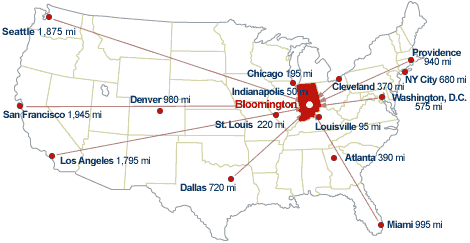
"In the Heart of a Great Country, Beats the Soul of Hoosier Nation." -South Beach Hoosier, 2007
#IUBB, #bannersix
The South Florida I Grew Up In
Excerpts from Joan Didion's Miami, 1987, Simon & Schuster:
In the continuing opera still called, even by Cubans who have now lived the largest part of their lives in this country, el exilo, the exile, meetings at private homes in Miami Beach are seen to have consequences. The actions of individuals are seen to affect events directly. Revolutions and counter-revolutions are framed in the private sector, and the state security apparatus exists exclusively to be enlisted by one or another private player. That this particular political style, indigenous to the Caribbean and to Central America, has now been naturalized in the United States is one reason why, on the flat coastal swamps of South Florida, where the palmettos once blew over the detritus of a dozen failed booms and the hotels were boarded up six months a year, there has evolved since the early New Year's morning in 1959 when Fulgencio Batista flew for the last time out of Havana a settlement of considerable interest, not exactly an American city as American cities have until recently been understood but a tropical capital: long on rumor, short on memory, overbuilt on the chimera of runaway money and referring not to New York or Boston or Los Angeles or Atlanta but to Caracas and Mexico, to Havana and to Bogota and to Paris and Madrid. Of American cities Miami has since 1959 connected only to Washington, which is the peculiarity of both places, and increasingly the warp...
"The general wildness, the eternal labyrinths of waters and marshes, interlocked and apparently neverending; the whole surrounded by interminable swamps... Here I am then in the Floridas, thought I," John James Audobon wrote to the editor of The Monthly American Journal of Geology and Natural Science during the course of an 1831 foray in the territory then still called the Floridas. The place came first, and to touch down there is to begin to understand why at least six administations now have found South Florida so fecund a colony. I never passed through security for a flight to Miami without experiencing a certain weightlessness, the heightened wariness of having left the developed world for a more fluid atmosphere, one in which the native distrust of extreme possibilities that tended to ground the temperate United States in an obeisance to democratic institutions seemed rooted, if at all, only shallowly.
At the gate for such flights the preferred language was already Spanish. Delays were explained by weather in Panama. The very names of the scheduled destinations suggested a world in which many evangelical inclinations had historically been accomodated, many yearnings toward empire indulged...
In this mood Miami seemed not a city at all but a tale, a romance of the tropics, a kind of waking dream in which any possibility could and would be accomodated...
Hallandale Beach Blog
http://www.hallandalebeachblog.blogspot.com/
Hallandale Beach Blog is where I try to inject or otherwise superimpose a degree of accountability, transparency and much-needed insight onto local Broward County government and public policy issues, which I feel is sorely lacking in local media now, despite all the technological advances that have taken place since I grew-up in South Florida in the 1970's. On this blog, I concentrate my energy, enthusiasm, anger, disdain and laser-like attention primarily on the coastal cities of Aventura, Hollywood and Hallandale Beach.
IF you lived in this part of South Florida, you'd ALREADY be in stultifying traffic, be paying higher-than-necessary taxes, and be continually musing about the chronic lack of any real accountability or transparency among not only elected govt. officials, but also of City, County and State employees as well. Collectively, with a few rare exceptions, they couldn't be farther from the sort of strong results-oriented, work-ethic mentality that citizens here deserve and are paying for.
This is particularly true in the town I live in, the City of Hallandale Beach, just north of Aventura and south of Hollywood. There, the Perfect Storm of years of apathy, incompetency and cronyism are all too readily apparent.
It's a city with tremendous potential because of its terrific location and weather, yet its citizens have become numb to its outrages and screw-ups after years of the worst kind of chronic mismanagement and lack of foresight. On a daily basis, they wake up and see the same old problems again that have never being adequately resolved by the city in a logical and responsible fashion. Instead the city government either closes their eyes and hopes you'll forget the problem, or kicks them -once again- further down the road.
I used to ask myself, and not at all rhetorically, "Where are all the enterprising young reporters who want to show through their own hard work and enterprise, what REAL investigative reporting can produce?"
Hearing no response, I decided to start a blog that could do some of these things, taking the p.o.v. of a reasonable-but-skeptical person seeing the situation for the first time.
Someone who wanted questions answered in a honest and forthright fashion that citizens have the right to expect.
Hallandale Beach Blog intends to be a catalyst for positive change. http://www.hallandalebeachblog.blogspot.com/
http://www.hallandalebeachblog.blogspot.com/
Hallandale Beach Blog is where I try to inject or otherwise superimpose a degree of accountability, transparency and much-needed insight onto local Broward County government and public policy issues, which I feel is sorely lacking in local media now, despite all the technological advances that have taken place since I grew-up in South Florida in the 1970's. On this blog, I concentrate my energy, enthusiasm, anger, disdain and laser-like attention primarily on the coastal cities of Aventura, Hollywood and Hallandale Beach.
IF you lived in this part of South Florida, you'd ALREADY be in stultifying traffic, be paying higher-than-necessary taxes, and be continually musing about the chronic lack of any real accountability or transparency among not only elected govt. officials, but also of City, County and State employees as well. Collectively, with a few rare exceptions, they couldn't be farther from the sort of strong results-oriented, work-ethic mentality that citizens here deserve and are paying for.
This is particularly true in the town I live in, the City of Hallandale Beach, just north of Aventura and south of Hollywood. There, the Perfect Storm of years of apathy, incompetency and cronyism are all too readily apparent.
Sadly for its residents, Hallandale Beach is where even the easily-solved or entirely predictable quality-of-life problems are left to fester for YEARS on end, because of myopia, lack of common sense and the unsatisfactory management and coordination of resources and personnel.
It's a city with tremendous potential because of its terrific location and weather, yet its citizens have become numb to its outrages and screw-ups after years of the worst kind of chronic mismanagement and lack of foresight. On a daily basis, they wake up and see the same old problems again that have never being adequately resolved by the city in a logical and responsible fashion. Instead the city government either closes their eyes and hopes you'll forget the problem, or kicks them -once again- further down the road.
I used to ask myself, and not at all rhetorically, "Where are all the enterprising young reporters who want to show through their own hard work and enterprise, what REAL investigative reporting can produce?"
Hearing no response, I decided to start a blog that could do some of these things, taking the p.o.v. of a reasonable-but-skeptical person seeing the situation for the first time.
Someone who wanted questions answered in a honest and forthright fashion that citizens have the right to expect.
Hallandale Beach Blog intends to be a catalyst for positive change. http://www.hallandalebeachblog.blogspot.com/
Hallandale Beach's iconic beachball-colored Water Tower, between beach and A1A/South Ocean Drive
Hollywood in Cartoons, The New Yorker

"Gentlemen, I am happy to announce that as of today we are closing down our Washington news bureau and moving the entire operation to L.A."
Hollywood in Cartoons, The New Yorker
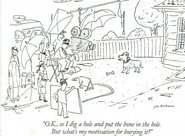
"O.K., so I dig a hole and put the bone in the hole. But what's my motivation for burying it?"
Hollywood in cartoons, 10-21-06 Non-Sequitur by Wiley, www-NON-SEQUITUR.COM

The Magic of Hollywood: A motion has been put forth that we should seek to create rather than imitate. All in favor of killing this silly notion, nod in mindless agreement...
Miami Dolphins
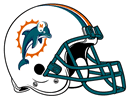
South Beach Hoosier's first Dolphin game at the Orange Bowl came in Dec. 1970, aged 9, a 45-3 win over Buffalo that propelled them into their first ever playoff appearance.
Sebastian the Ibis, the Spirited Mascot of the University of Miami Hurricanes

Before going to my first U-M game at the Orange Bowl in 1972, a friend's father often would bring me home an extra 'Canes game program. That's how I came to have the Alabama at U-M game program from Nov. 16, 1968, which was the first nationally-televised college football night game in color. (A 14-6 loss to the Crimson Tide.) After that first ballgame against Tulane, as l often did for Dolphin games if my father wasn't going, I'd get dropped off at the Levitz parking lot near the 836 & I-95 Cloverleaf in NMB, and catch a Dade County Park & Ride bus, going straight to the Orange Bowl. Onboard, I'd get next to the window and listen to WIOD's pre-game show on my Radio Shack transistor radio. A few times, I was just about the only person onboard besides the bus driver, which was alright by me. Once at the Orange Bowl, if I didn't already have a ticket, I'd buy a game program for myself and one or two for friends or teachers before heading to the ticket window, since you usually couldn't find a program vendor once inside. I probaly had a friend or my father with me for just under 40% of the U-M games I ever went to, but you have to remember that the team, though blessed with several talented players, like Chuck Foreman and Burgess Owens, was just so-so to average at best, and the games were usually played on Friday nights, so it wasn't exactly high on everyone's list of things to do. Depending upon the opponent, if I was alone, I'd often have entire areas of the Orange Bowl to myself. (Wish I had photos of that now!) For instance, I had a good portion of the East (open) End Zone to myself against Oklahoma in the mid-70's, when the Boomer Schooner and the Schooner Crew went out on the field after an Oklahoma TD, and the Schooner received an unsportsmanlike conduct penalty from the refs, as would happen years later in an Orangle Bowl Classic game. (Against FSU?) I was there for the wins and losses under Pete Elliott, Carl Selmer & Lou Saban, and the huge on-field fight in '73 when under eventual national champion Notre Dame (under Ara Parseghian), they called a time-out with less than a minute to go, and already up 37-0. Their rationale? To score another TD and impress the AP football writers; final score 44-0. Well, they got their wish and beat Alabama 24-23 for the title at the Sugar Bowl. A year later, thanks to my Mom's boss, she and I saw Ara's last game as head coach of the Irish in the Orange Bowl Game from the East End Zone -in front of the Alabama cheerleaders!!!- in an exciting 13-11 Notre Dame win over Alabama and Bear Bryant, a rematch of the '73 national title game. I was also present for the U-M's huge 20-15 win under Pete Elliott against Darrel Royal's Texas Longhorns, the week Sports Illustrated's College Football preview issue came out with Texas on the cover, below. I was also present for lots of wins against schools called College of the Pacific, UNLV and Cal-Poly San Luis Obsispo, which I'd then never heard of before.
Miami Dolphins Cheerleaders, April 28, 2007

Photo by Mario J. Bermudez. April 28, 2007 at Dolphins NFL Draft Party at Dolphin HQ, Davie, FL
Of cheerleaders past and present
Given South Florida's unique version of the melting pot -con salsa- demographics and mindset, these women in the photo above are surely what most South Floridians would consider attractive women. But for this observer, who's spent hours & hours at IU cheerleader tryouts and who has known dozens of cheerleaders -and wannabes- in North Miami Beach, Bloomington, Evanston and Washington, D.C., the whole time I was watching these members of the Dolphins' squad perform, I couldn't help but compare them and their routines to those of some IU friends of mine who ALWAYS showed true Hoosier spirit & enthusiasm.
Sitting at my table right near the stage and still later, while watching the long lines of Dolphin fans of all ages waiting to snap photos of themselves with the cheerleaders, I couldn't help but think about those friends who always left me and other Hoosier fans feeling positive & optimistic.
Was there anyone I saw in Davie who possessed these valuable intangibles: the dancing precision of IU Red Stepper -and Captain- Gail Amster, my talented and spirited Phi Beta Kappa pal from Deerfield (IL), who always sat next to me in our Telecom. classes as we took turns entertaining the other; the ebullient spirit & energy of two Hoosier cheerleaders -and captains- from Bloomington, Wendy (Mulholland) Moyle & Sara Cox; the hypnotic, Midwestern, girl-next-door sexiness of Hoosier cheerleader Julie Bymaster, from Brownsburg; or, the adorable Southern girl-next-door appeal of former Hoosier Pom squader Jennifer Grimes, of Louisville, always such a clear distraction while sitting underneath the basket?
Nope, not that I could see. But then they were VERY tough acts to follow!!!
And that's not to mention my talented & spirited friends like Denise Andrews of Portage, Jody Kosanovich of Hammond & Linda Ahlbrand of Chesterton, all of whom were dynamic cheerleaders -and captains- at very large Hoosier high schools that were always in the championship mix, with Denise's team winning the Ind. football championship her senior year when she was captain -just like in a movie. That Denise, Jody & Linda all lived on the same dorm floor, just three stories above me at Briscoe Quad our freshman year, was one of the greatest coincidences -and strokes of luck for me!- that I could've ever hoped for.
You could hardly ask for better ambassadors of IU than THESE very smart, sweet and talented women. In a future SBH post, I'll tell the story of one of the greatest Hoosiers I ever met, the aforementioned Wendy Mulholland, the Bloomington-born captain and emotional heart of the great early '80's IU cheerleading squads, and the daughter of Jack Mulholland, IU's former longtime Treasurer. The acorn doesn't fall far from a tree built on a foundation of integrity & community service!
(After he retired, Mr. Mulholland was the first executive director of the Community Foundation of Bloomington and Monroe County. I used to joke with Wendy that her dad's name was the one that was permanently affixed to the bottom of my work-study checks for years, while I worked at the Dept. of Political Science's Library, first, at the Student Building in the old part of campus, and then later, after it was refurbished, in magnificent Woodburn Hall, my favorite building on campus.)
In that future post, I'll share some reflections on Wendy's great strength of character and personality; my intentions of returning to Bloomington a few weeks before Fall '82 classes started, so I could help Wendy train and work-out to rehab her knee, so she'd feel confident in trying-out for the squad again, following a bad knee injury that'd left her physically-unable to try-out for the squad the previous spring, a big disappointment to those of us who cared about both Wendy and the team; my incredulity at, quite literally, running into Wendy while walking down a sidewalk one afternoon a few years later in Evanston, IL, when we were astonished to discover we were both living there, with me trying to hook on with a Windy City advertising agency, and Wendy then-attending Kellogg (KGSM) at Northwestern, right when the WSJ had named Kellogg the #1 Business School in the country.
I'll also share a story about Wendy performing a true act of kindness towards me in 1982, when I was having a real emergency, and she went above-and-beyond what I had any logical reason to expect. Yet, Wendy, along with her very helpful dad, Jack, came through for me when I was in a very bad time crunch. I've never forgotten Wendy's kindness towards me, and her true Hoosier spirit.
There's NOTHING I wouldn't do for Wendy Mulholland.
It's All About "The U"

South Beach Hoosier's first U-M football game at the Orange Bowl was in 1972, age 11, against Tulane in the infamous "Fifth Down" game. In order to drum up support and attendance for the U-M at the Orange Bowl, that game had a promotion whereby South Florida kids who were school safety patrols could get in for free IF they wore their sash. I did. Clearly they knew that it was better to let kids in for free, knowing their parents would give them money to buy food and souvenirs, perhaps become a fan and want to return for future games. The ballgame made an interesting impression on The New York Times, resulting in this gem from the "View of Sport" column of Oct, 14, 1990, labeled 'Fifth Down or Not, It's Over When It's Over.' -"In 1972, aided by a fifth-down officiating gift in the last moments of the game, Miami of Florida defeated Tulane, 24-21. The country and the world was a much different place that fall because The New York Times took time and space to editorialize on the subject. ''Is it right for sportsmen, particularly young athletes, to be penalized or deprived of the goals for which they earnestly competed because responsible officials make mistakes? The ideal of true sportsmanship would be better served if Miami forfeited last week's game.' South Beach Hoosier hardly needs to tell you that this was YET another New York Times editoral that was completely ignored!
The issue I took with me the night of U-M's 20-15 upset of #1 Texas at the Orange Bowl
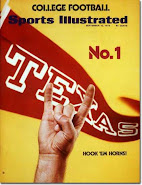
College Football, Texas No. 1, Hook 'em Horns, Sept. 10, 1973. Living in North Miami Beach in the '70's, my Sports Illustrated usually showed up in my mailbox on the Thursday or Friday before the Monday cover date. And was read cover-to-cover by Sunday morning.
The Perfect Storm
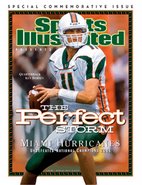
U-M QB Ken Dorsey, Miami Hurricanes Undefeated National Champions 2001, Jan. 2002
Miami's Romp in the Rose
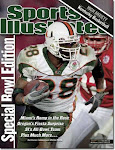
Miami running back Clinton Portis, Jan. 7, 2002
Why the University of Miami should drop football
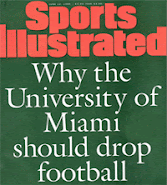
June 12, 1995
REVENGE!
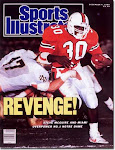
Steve McGuire and Miami Overpower No.1 Notre Dame, Dec. 4, 1989
How Sweet It Is!
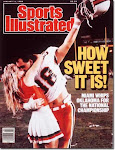
Miami Whips Oklahoma For The National Championship, Pictured: Dennis Kelleher, Jan. 11, 1988
My, Oh My, Miami!
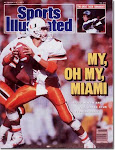
Steve Walsh and the Canes Stun FSU, Oct. 12, 1987
Why Is Miami No. 1?

QB Vinny Testaverde, Nov. 24, 1986
Miracle In Miami
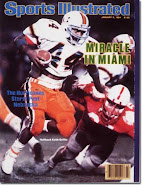
The Hurricanes Storm Past Nebraska, Halfback Keith Griffin, Jan. 9, 1984
Special Issue: College Football
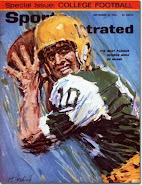
The Best Passer, George Mira of Miami, Sept. 23, 1963
1984 College & Pro Spectatcular
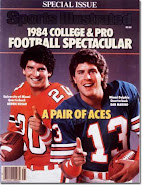
A Pair Of Aces: U-M QB Bernie Kosar & Miami Dolphin QB Dan Marino, Sept. 5, 1984
Pro Football Hall of Fame Special Issue

Dan Marino, Class of 2005, Aug. 2005
FACES OF THE NFL
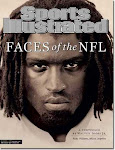
A Portfolio by Walter Iooss Jr., Ricky Williams, Miami Dolphins, Dec. 9, 2002
Coming Back
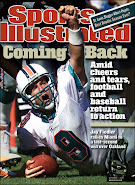
Jay Fiedler rallies Miami to a last-second win over Oakland, Oct. 1, 2001
Dan's Last Stand
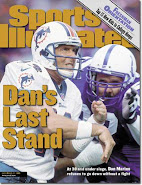
At 38 and under siege, Dan Marino refuses to go down without a fight, Dec. 13, 1999
The War Zone
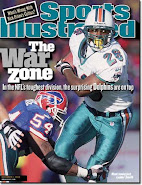
In the NFL's toughest division, the surprising Dolphins are on top, Lamar Smith, Dec. 11, 2000
Down and Dirty
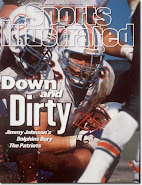
Jimmy Johnson's Dolphins Bury The Patriots, Steve Emtman, Sept. 9, 1996
The Sunshine Boys

Now Playing in Miami: The Dan Marino and Jimmy Johnson Show, May 11, 1996
HOT & NOT
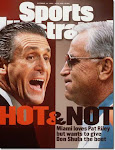
Miami loves Pat Riley but wants to give Don Shula the boot, Dec. 11, 1995
NFL PREVIEW 1995
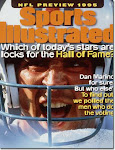
Which of today's stars are locks for the Hall of Fame? Dan Marino for sure. But who else? To find out, we polled the men who do the voting. Sept. 14, 1995
Sportsman Of The Year
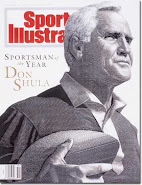
Don Shula, Dec. 20, 1993
Dan The Man
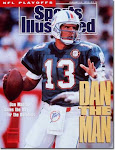
Dan Marino Saves The Day For The Dolphins, Jan. 14, 1991
Dangerous Dan
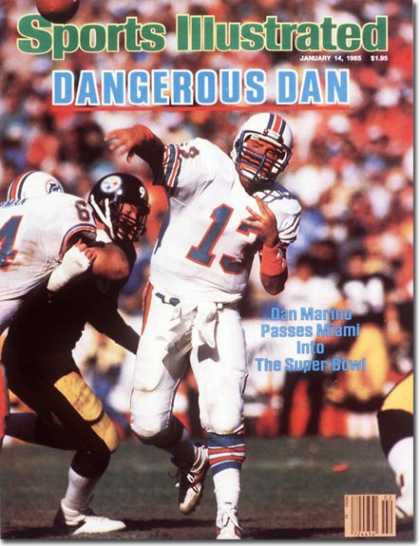
Dan Marino Passes Miami Into The Super Bowl, Jan. 14, 1985
Super Duper!

Wide Receiver Mark Duper Of The Undefeated Dolphins, Nov. 19, 1984
Air Raid! Miami Bombs Washington
+Sep+10,+1984.jpg)
Mark Clayton (burning Darryl Green) Sept. 10, 1984
Rookies On The Rise
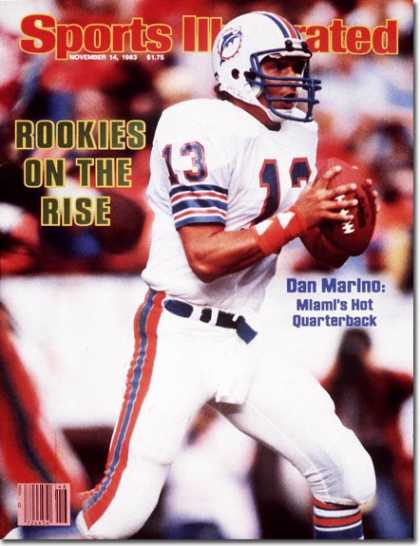
Dan Marino: Miami's Hot Quarterback, Nov. 14, 1983
New Life In The WFL
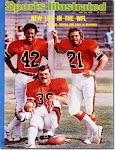
Warfield, Csonka and Kiick of Memphis, July 28, 1975
Zonk! Miami Massacres Minnesota
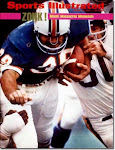
Larry Csonka, Jan. 21, 1974
Pro Football, Miami Is Rough And Ready
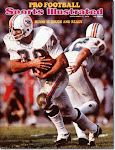
Larry Csonka & Bob Griese, Sept. 17, 1973
Miami All The Way
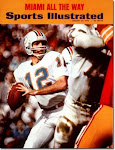
Bob Griese, Jan. 22, 1973
It's Miami and Washington
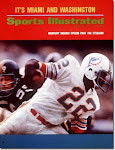
Mercury Morris Speeds Past The Steelers, Jan. 8, 1973
Kiick and Csonka, Miami's Dynamic Duo

Larry Csonka & Jim Kiick, Aug. 7, 1972
Sudden Death at Kansas City
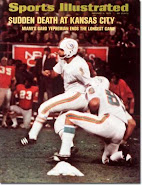
Miami's Garo Yepremian Ends the Longest Game; (kneeling) placekick holder Karl Noonan, Jan. 3, 1972
New Pro in a New Town

Miami's Frank Emanuel, Aug. 8, 1966
Old-style "Obie" the Orange Bowl Committee mascot

The iconic image I grew-up with in Miami, before FedEx got into the picture

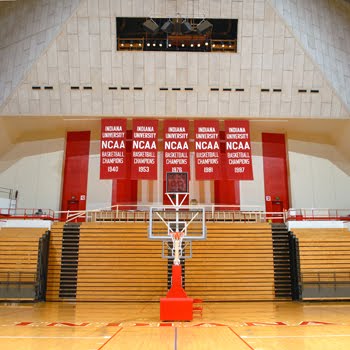

No comments:
Post a Comment